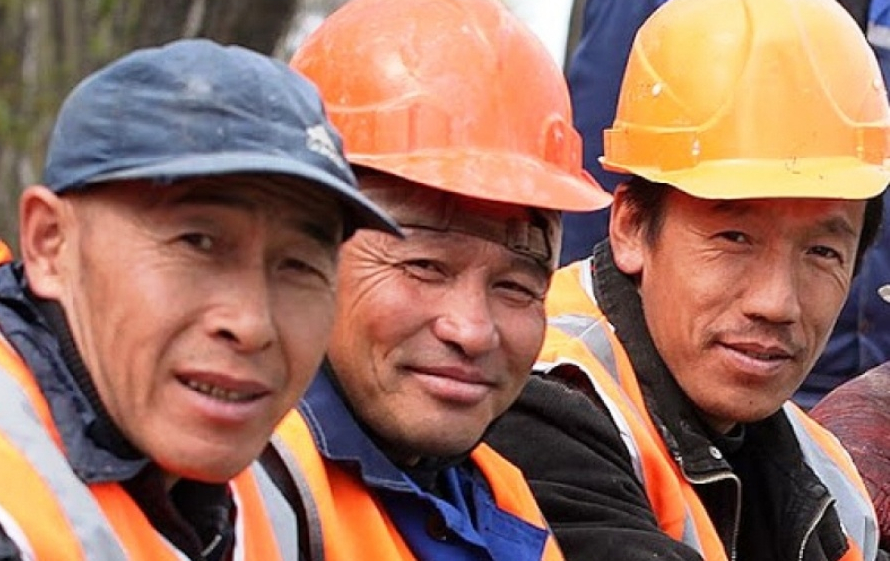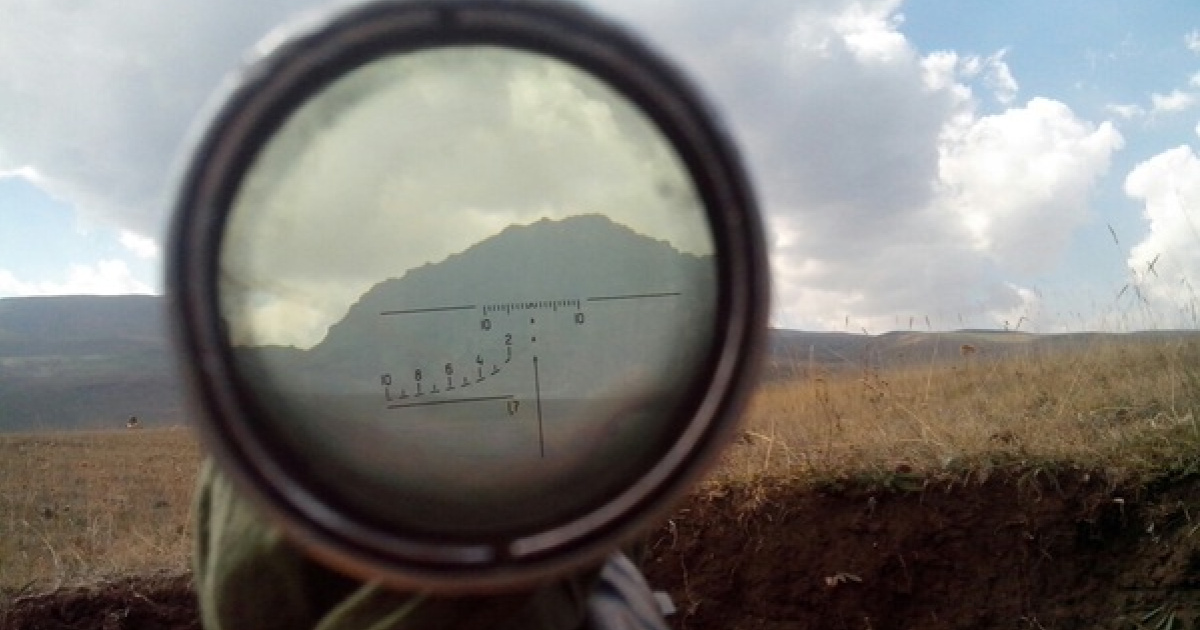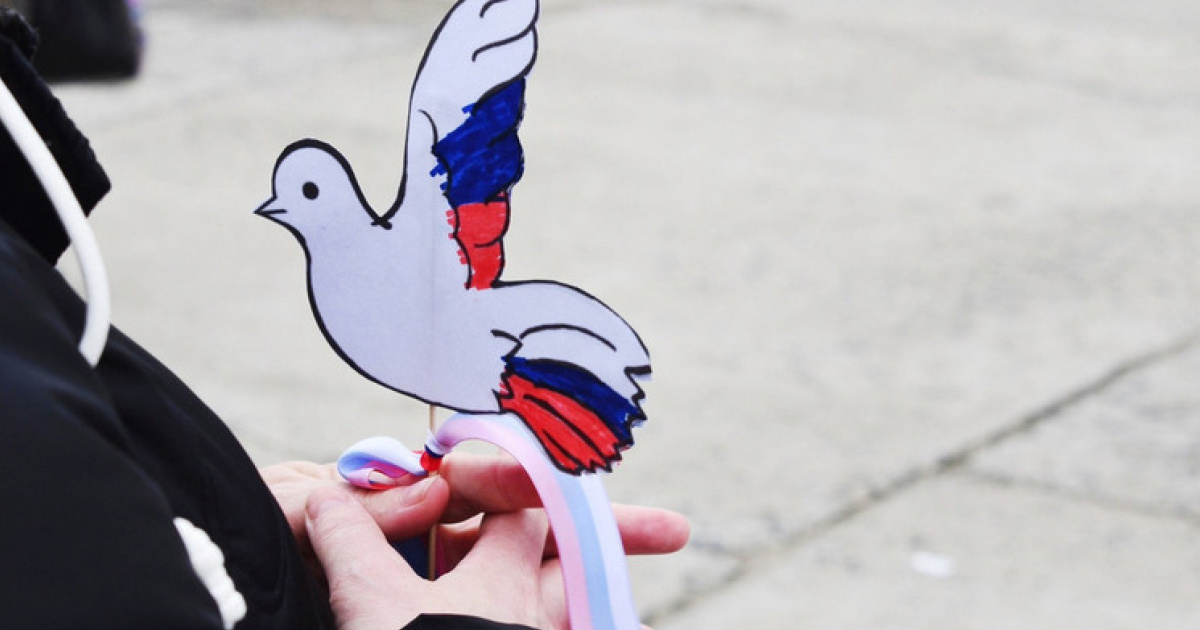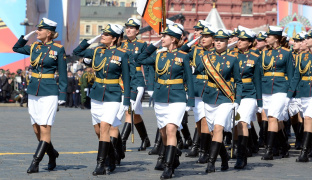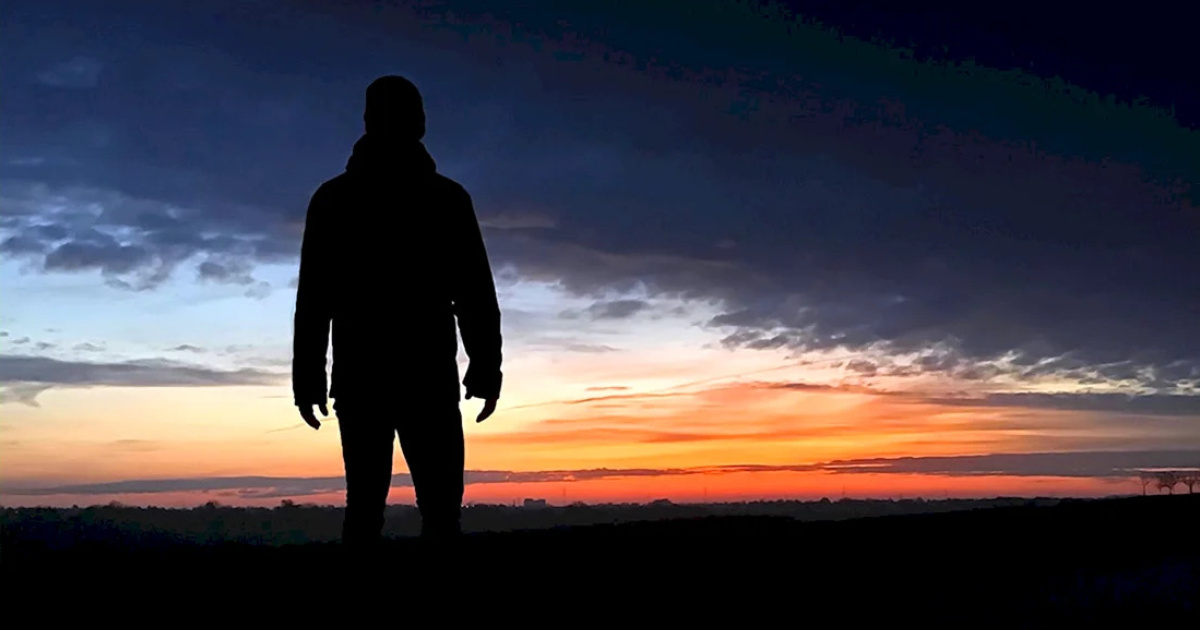Against the background of mass repressions and even murders of representatives of sexual minorities in the heart of the "Russian world" Chechnya, the question about the security and protection of the rights of LGBT (lesbian, gay, bisexual, transgender) residing in the occupied territory of Ukraine arose. OstroV did some research on this topic.
Legislative framework of the "republics"
On the one hand, there is no official ban of homosexual relations or criminal responsibility for this in the "DPR" and "LPR" (as it was in Soviet times). On the other hand, such attempts took place.
In September 2014, the "LPR" offered to make gay sex a criminal offence (from 2 to 5 years of imprisonment). But the initiative was not approved.
Later, information appeared that in the so-called "constitution of the DPR” the prohibition of same-sex relationships was mentioned: "Article 31.3. No forms of perverted unions between people of the same sex in the Donetsk People's Republic are recognized, and they are prosecuted by law".
However, there is no such article in the current version of the document.
In November 2014, a scandal broke out when ex-advisor to the Minister of Defense of Ukraine Oleksandr Danilyuk announced that the commander of the “LPR’s" brigade Prizrak Aleksey Mozgovoi had imposed the death penalty for homosexuality.
"Mozgovoi imposed the death penalty for homosexuality. Today, the first defendant was executed", - he wrote on Facebook.
Mozgovoi denied this information. "No one was executed or shot, this never happened", - he said, but noted that "most of normal men would support the ban on homosexuality", but nobody will do this directly.
At present, Article 48 of the "constitution" of the pseudo-republic states the following: "The rights and freedoms of a person and a citizen can be limited by law only to the extent necessary to protect the foundations of the constitutional order, morality, health, rights and legitimate interests of others, ensuring the defense of the country and the security of the state". It copies the text of Article 55 of the Constitution of the Russian Federation.
For comparison: the Constitution of Ukraine (Article 64) states that the constitutional rights and freedoms of a person and a citizen cannot be limited, except in cases stipulated by the Constitution.
In 2015, the scandalous Russian deputy of the Legislative Assembly of St. Petersburg Vitaly Milonov, suggested that the "parliaments" of the "DPR" and "LPR" legislatively prohibit the propaganda of homosexual relations.
"I sent relevant messages to my colleagues, I hope that the deputies of the "DPR" and "LPR" will listen to my idea and introduce norms similar to those that operate in Russia. It is necessary to enshrine in law the special status of the traditional family and exclude manifestations of non-traditional propaganda", - he said in an interview.
The "republics" did not take long and after a while enshrined these norms in law.
Currently, the Code of Administrative Offenses operates in the "LPR". It almost copies the Administrative Code of the Russian Federation, which establishes responsibility for the promotion of non-traditional sexual relations among minors.
"The promotion of non-traditional sexual relations among minors, expressed in the dissemination of information aimed at the formation of unconventional sexual attitudes among minors, the attractiveness of non-traditional sexual relations, a distorted view of the social equivalence of traditional and non-traditional sexual relations, or the imposition of information on non-traditional sexual relations, if these actions do not contain a criminal offense, they entail the imposition of an administrative fine on citizens in the amount USD 177-355, on officials - USD 708-885, on legal entities - USD 13 120-16 402, or administrative suspension of activities for a period of ninety days", - the document says.
If this "crime" is committed by a foreigner or a stateless person, the offender may also be arrested for up to 15 days and expelled "from the Luhansk People's Republic".
Now the "DPR" uses the Code of Administrative Offenses, which does not contain any provisions on "the propaganda of non-traditional sexual relations". Despite this, the "republic" found where to include this norm. The "DPR" law "On the protection of children from information", which again copies the Code of Administrative Offenses of the Russian Federation, establishes responsibility for the promotion of non-traditional sexual relations among minors. In fact, it repeats the code of the "LPR", which was discussed above. The "DPR" fines are several times smaller.
Not so long ago, the legislation of the "republics" was applied in practice. In February 2017, a message appeared that the Russian LGBT activist Oleg Vasilyev (also known as Seroe Fioletovoye — agender, preferring to identify himself in the neutral gender) disappeared in the “DPR”. He went to the "republic" to hold a rally in support of the LGBT community, but he stopped contacting after crossing the Russian-Ukrainian border (uncontrolled Ukraine's territory).
As it turned out later, the activist was detained by "local security officials" and expelled from the "DPR".
"Violence and violation of rights"
"Violence and violation of rights", - that is how Olena Shevchenko, executive director of the Insight public organization, described the situation with LGBT rights in the occupied Donbass area.
"It is difficult for any human rights organizations to work in the occupied territories, especially for those that are registered in the territory under the control of Ukraine. And it is difficult to monitor the situation on observance of LGBT rights there. We can only get information from the people who came from there. It should be understood that human rights do not work in any way on the occupied territories, and it is difficult to defend these rights. Also, all laws that exist in the Russian Federation work there, and one of them is the so-called law on the homosexuality propaganda. If you are suspected to be LGBT, you will not be able to live there. We are seeing violence, violation of rights, inability to rent an accommodation and find a job there", - she said to OstroV.
This information is confirmed by representatives of LGBT community who stayed to live in uncontrolled territory or left it.
Nikolai from Donetsk had been hiding his sexual orientation from his family and friends for the whole life. According to him, it was okay for him and did not bother him.
"I never felt any discrimination. My life suited me: I do not tell anyone about my orientation and do not show hackles. I had been living with a partner for several years. Only few people were aware of our relationship, the rest considered us to be just friends. Coming out was really dangerous in Donbass. Everything has changed with the beginning of the war. The majority of our friends left at once. My partner and I decided to stay, because our parents, who needed our help, stayed in our city. Fear came with the arrival of armed men, knowing about their attitude towards gays. We began to worry that our relationship and our life together can be revealed”, - Nikolai recalls.
In September 2015, Nikolai and his boyfriend had to leave the occupied Donbass. They moved to Kyiv, where they now live.
"We moved and sighed with relief. Of course, no one beat us there and did not put us in cellars, but you live with the understanding that it can happen at any moment. All the gay clubs there closed. Guys are afraid to meet in public places and cafes, only via the Internet, but it is also unsafe", - he says.
But not all LGBT decided to leave the occupied territory of Donbass. Due to different circumstances people continue to live under the rule of the so-called "republics". Alexander from Makiivka is just one of them.
"All my life I lived in Makiivka and after military operations began, I went to Kharkiv, but I could not find a normal job there to pay my way, so a few months later I came back. I have a job, my own accommodation, and I am happy with such stability. I am gay, but I did not advertise that. The town is small and everyone would know immediately. Earlier, I got acquainted with people online, but now it is more complicated and dangerous, there is always a chance to get on a fake profile. In that case they can beat you, rob or worse – just kill. In Donetsk gay circles I often heard such stories when people appointed a meeting, but instead of one, several strong guys came and robbed or beat the gay person", - he said.
The most terrible thing is, Alexander confesses, that in such a case it makes no sense to go to the police station. At best they will just tell you to get lost, at worst they will lock you in the cell or beat.
"The DPR does not want to hear about the rights of gay people and their existence in general, and this suits the pensioners who fiercely advocate for Russia", - he told.
A report on the study of the situation with the rights of LGBTI in the Crimea and the Donbass, which was conducted by the ADC Memorial with the support of the Center for Civil Liberties, was published in June 2016. It says that the risk of aggression on the part of armed formations in the situation of lawlessness and impunity exists for all residents of the territory of the so-called "DPR" and "LPR", but militants pose a particular and quiet real threat for LGBT.
"Many LGBT who have stayed in the Donbass stopped any communication with other members of the community, except for the closest ones. If closed meetings of LGBTI took place in the Crimea, then it became impossible in the so-called "DPR" and "LPR". However, there is information about the violence and inhuman treatment of LGBTI on the part of armed people. According to the informant who left the Donetsk oblast, "a friend witnessed how a gay was shot up and heeled in behind the Yasynuvatsky post", - was said in the report.
The respondents who left Donetsk stated that if the armed people learned about the orientation of the person, they took him to the basement, put him there for intimidation, getting ransoms and free labor, humiliated and offended him.
The report also indicated the presence of groups of homophobes in the territories of the "DPR" and "LPR", who have been organizing false dates with LGBT, as a result of which a person could be beaten or be handed over to armed people.
At the same time, all the places for LGBT meetings that operated earlier were closed in the uncontrolled territory of the Donbass.
"None of the LGBT organizations has remained in the occupied territory of the Donbass. The same situation is with the night gay clubs. I think that people gather at home of each other, but this is not advertised", - the Director of the Insight non-governmental organization Olena Shevchenko says.
Militants attacked the Babylon Donetsk gay club in June 2014, the visitors were beaten and robbed.
"It was really scary. A few armed people ran into the club, led some people out on the street, shouted offences. Then they took money, mobile phones and other things away from everyone (the money has not been returned). They behaved obscenely. The visitors were very scared. Of course, the club was closed after this incident", - the eyewitness of the incident told OstroV.
Another establishment, Kunderbunt, where LGBT parties were held earlier, was forced to close.
Militants in Donetsk also destroyed the ISOLATION art-space which is known for supporting artists and activists who stood up for the rights of LGBT.
At the same time, according to OstroV, theme parties are occasionally held in Donetsk (the last was in December 2016), but the venue and other information are well-kept and divulged only to a narrow group of people.
The homophobic sentiments of the "authorities" of pseudo-republics can also be judged by the posters with the text "a smoking woman risks giving birth to a gay", which appeared inside the building of the Donetsk Regional Administration in early 2015.

LGBT topic is also actively used in the "republics" in a hybrid war against Ukraine, in particular, as an object for blackmailing those they use in this war. A scandal broke out in the "DPR" in February 2016, when two militants of Oplot were caught at the moment of intimacy.
"Fighters Viktor Kolomoytsev and Eduard Polynnikov were caught red-handed by comrades-in-arms. Both fighters will be deprived of all ranks and awards, expelled with disgrace from the "unit" with a ban on serving in other units of the DPR army", - the statement that was spread in social networks said.

It became known later that Viktor Kolomoytsev was forced to flee to the "LPR", but he was detained there by the MSS employees and already named the Major of the Armed Forces of Ukraine, who was accused of the car bomb attack and the death of the so-called head of the "LPR" People's Militia Office Oleg Anashchenko.
"The main culprit of the explosion was found quickly. It was a Major of the Armed Forces of Ukraine. He was seized today by the law-enforcement officers. According to some data, the Ukrainian officer tried to leave the LPR, having changed into a woman's dress", - the Russian media reported.
However, judging by the Myrotvorets website, Victor Kolomoytsev is a militant of the illegal armed formations, and the accusation of murder and his enrollment to the Armed Forces of Ukraine are likely turned out to be a punishment for intimacy with a man.

After moving to the controlled territory of Ukraine
Timofiy left the occupied Donetsk just after the "DPR" came to power. According to him, the homophobic sentiments among the militia were felt at once.
"I went to Kyiv, but everything was not so bright and beautiful there. For example, marches for equality held in 2015 and 2016. I participated in them and I was scared". We met secretly in 2015, in fear, and eventually we were attacked by the radicals. Everything was calmly in the past year, but there were many threats and the fear of attack still persisted. Ukrainian society is homophobic at most in general and not ready to accept LGBT. So we are not very different from the "DPR" and "LPR" in this respect: we have enough discrimination and homophobia on the part of militants there and on the part of radicals here", - he says.
Indeed, the Ukrainian radical organizations have repeatedly made homophobic statements and threats against all kinds of LGBT events in Ukraine. For example, holding of the "March for Equality" in 2015 when several dozens of people attacked its participants. 20 people were injured as a result, one of the police officers was on last legs. Opponents of the march pelted activists with petards and smoke pellets. And this is despite the fact that the event was held in one of the residential districts of the capital and its location was kept low key.
LGBT activists decided to hold a march for equality in the very center of Kyiv in 2016. Radical organizations, Right Sector in particular, threatened to disrupt the action and arrange a "bloody mess" just before the march. Unprecedented security measures were taken on the day of the march, resulting in the fact that there were more law enforcement officers then participants. Everything was calmly in general.
Some political and public figures allow themselves to make harsh statements about LGBT despite the European vector of Ukraine's development. For example, the Advisor to the Minister of Internal Affairs Illia Kyva believes that homosexualism must be put to death.
"The BIBLE, LEVITICUS 20:13. If a man lies with a male as with a woman, both of them have committed an abomination; they shall surely be put to death; their blood is upon them" – he wrote on Facebook, being the head of the department for combating drug-related crimes.

He also expressed the conviction that Ukrainian society is being imposed with foreign ideology and principles of morality.
"I struggle for a human, healthy, full-fledged and well-conditioned future… Someone in the Verkhovna Rada is working on homosexual grants and trying to impose their game to us. I am concerned about the future of our children. What interests me is that my son and daughter will never come across and be prejudiced their rights, because this process already begins today when the rights of heterosexual people are being prejudiced", - the Ukrainian official said.
In general, according to the studies of the International Association of LGBTI in Europe (ILGA-Europe), the index reflecting the level of observance of LGBTI rights in Ukraine remains extremely low from 2014-2016 - within 10-13%. This is certainly higher than in Russia (7%), but much lower than in European countries (18% in neighboring Poland, 55% in Germany, 81% in Great Britain).
Ukraine does not have the same level of violence as in the occupied Donbass despite the abovementioned, the Executive Director of the Insight non-governmental organization Olena Shevchenko believes.
"They do not break into your apartment here, they do not say that you are a pervert and do not throw you into the basement", - she says.
In her opinion, the majority of LGBT left the uncontrolled territory of the Donetsk and Luhansk oblasts because of homophobia and violation of rights. Not everyone had the opportunity to rent a housing immediately, find a job and live fully in the status of a displaced person, so the Shelter project (temporary shelter) for LGBT people from the occupied territories was set up in Kyiv from June 2014.
"Our project started on June 20, 2014, and 55 people made use of it during this time. Our mission is to provide temporary shelter and assistance to LGBT displaced persons from the zone of military conflict and the occupied territories", - the coordinator of the Shelter project for LGBT people of NGO Insight Olha Olshanska told.
She also noted that displaced persons from among LGBT in the controlled by the Ukrainian authorities territory face difficulties with work search and further housing renting, as well as with transphobia and homophobia during the placement.
So LGBT representatives still continue to suffer from homophobia and discrimination after moving to the controlled territory of Ukraine. But in spite of this there is no such level of violence and insecurity before the law as in the occupied territories.
"If people have the opportunity to leave and adapt in the new place, I would advise to do it, because no one knows when the conflict will end, and this will be a constant danger and psychological pressure. I would not advise anyone to live in such a situation", - Olena Shevchenko believes.
Vladyslav Bulatchik, OstroV
